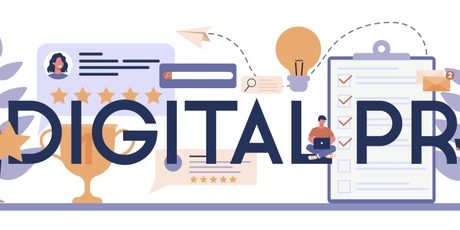In the past few years, brands, regardless of their shape and size have started understanding digital marketing. This means that convincing a majority of them about the advantages of digital marketing has ceased to exist in most situations.
You need to do thorough research when choosing a digital marketing agency that you need to partner with. If you are starting from scratch, you need to go via Digitech Web Design, a leading agency that can help you with everything from designing your business website to taking care of your SEO strategies and plans.
In 2020, brands are faced with a new challenge- which agency to partner with! Digital Marketing agencies are propping up left, right, and center. While everyone claims to be the best at what they do, it is for brands to be sure of their abilities.
In this article, we are going to help brands get on board the best digital marketing agencies as partners. However, before we get to the questions, brands should ask agencies, let us first look at some of the challenges of the same.
Challenges to Hiring the Best Digital Marketing Agency for your Brand
Every business is unique. It has its own sets of challenges. In terms of priority, some businesses want to concentrate on one aspect, while others look to do something else. It is important that your internet marketing agency understands your needs and requirements as a business.
Many brands feel that every digital or internet marketing agency offers the same. However, that is not the case. If you want to work with a complete 360-degree agency, you will have to shell out a premium. Therefore, it is essential to work with a skill set, which you feel would be most helpful for you at a specific time.
A creative agency will tell you that it is all about branding, logo, design, and language. An agency geared towards social media would want to focus on just that one aspect. You need to team, which amplifies your complete digital performance at all levels.
List of 5 Questions to ask your Digital Marketing Agency before you start
1. What is their area of Expertise?
It is essential that you honestly ask them about what their area of specialization at the very start is. Like we already mentioned, while some have a great social team, others might boast of a brilliant SEO team. Depending on what you want to proceed with for the next year, you need to ask them about their different verticals in the organization.
2. What are Budget and Fees?
At the end of the day, money matters. If you are looking for a highly-skilled, specialized agency, you need to shell out a good amount as retainer every month. However, if your agency helps you increase your sales and revenues multiple times, you will not feel the pinch. Try starting with a smaller agency to understand those basics and then proceed with the bigger ones.
3. What are their Credentials and Past Work Records?
Many brands feel secure when they see that an agency has handled clients in the past from their niche. While this is a great starting point, you should not let your options be limited by just this fact. If they have worked with a business of a similar nature in the past, then they are aware of all the challenges, strategies, and processes, which will be required in the case of your business.
4. What are their Marketing Inputs about your Brand?
Most agencies will ask you about your pressure or pain points and then proceed to offer solutions accordingly. You can use this to ask them about larger marketing and sales goals. This will help show you how much they are aligned with your brand. It will also demonstrate whether they understand your issues and are willing to address the same with their skills.
5. What is the Timeframe for seeing Results?
You are only working with an internet marketing agency because you want to start seeing results. There is always an expectation involved. Do not fear or feel embarrassed in communicating the same with the prospective agency. This will allow them to assess their performances and see whether they have the capability to fulfill your expectations.
The Final Word
It is essential that you proceed with these five questions before signing on an internet marketing agency. This will allow you to structure your expectations accordingly. A good digital agency can be a great asset to a brand. However, on the flip side, if you do not get the best agency, you will end up losing money.
Read Also:





















